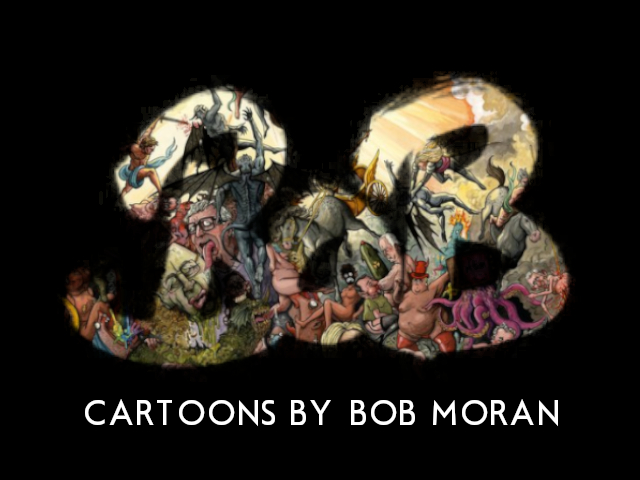WHEN PERCEPTION BECOMES REALITY, GET YOUR FLAK JACKET ON
by Rob Loggia
Friday, June 23, 2017
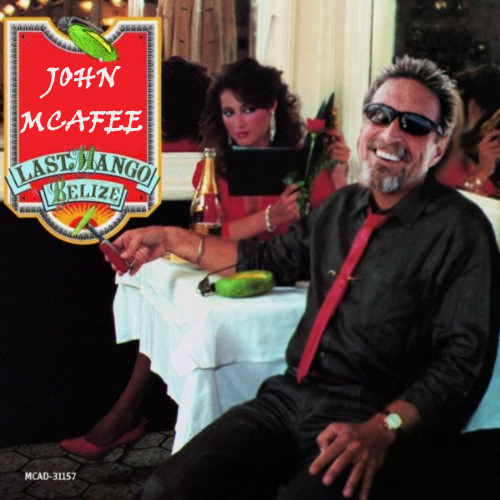 It seems the world will never tire of hearing the story of John McAfee's time in Belize. To be fair, it is a very interesting story, with lots of sensational twists and turns. The story of his escape from Belize rivals even fictional accounts of "The Great Escape" that have captivated audiences, iteration after iteration across generation after generation. If there was only a single mango left in Belize that week, McAfee would have eaten it on his way out. But while they were lapping it up at the time, that's not the part of the story our modern media likes to talk about. Especially not the huckster sensationalists that pass themselves off as documentary producers these days.
It seems the world will never tire of hearing the story of John McAfee's time in Belize. To be fair, it is a very interesting story, with lots of sensational twists and turns. The story of his escape from Belize rivals even fictional accounts of "The Great Escape" that have captivated audiences, iteration after iteration across generation after generation. If there was only a single mango left in Belize that week, McAfee would have eaten it on his way out. But while they were lapping it up at the time, that's not the part of the story our modern media likes to talk about. Especially not the huckster sensationalists that pass themselves off as documentary producers these days.
The latest video equivalent of clickbait comes from 20/20, and was essentially a rehash of the same tired accusations from the Showtime "documentary" from late last year. I thought 20/20 stooped to a new low, dragging out the mother to tell everyone how upset she was that her son is dead. Of course she is. That this is sleazy and grotesque I should think would be obvious. But it also has no bearing on McAfee's innocence or guilt whatsoever, and her inclusion speaks volumes about the characters and motives of the producers.
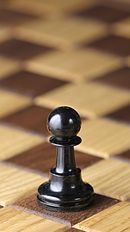 But this is par for the course. The shabby reporting that has followed John McAfee since Belize has branded him as guilty as an assumption. An assumption. The word "murderer" is bandied about, despite the glaring reality that he has never even been called a suspect in the case. The only "case" that has been made against him has been by the media, using people as pawns to be manipulated, bought and exploited. It is a "case" built entirely of innuendo, open-ended questions, and a single-minded determination to ignore all the pieces that don't fit.
But this is par for the course. The shabby reporting that has followed John McAfee since Belize has branded him as guilty as an assumption. An assumption. The word "murderer" is bandied about, despite the glaring reality that he has never even been called a suspect in the case. The only "case" that has been made against him has been by the media, using people as pawns to be manipulated, bought and exploited. It is a "case" built entirely of innuendo, open-ended questions, and a single-minded determination to ignore all the pieces that don't fit.
 The potential injustice of it all will only hit you if you accept the presumption, if only for a moment, that he actually did not kill that man. Keep in mind that this is almost impossible for him to establish, short of producing the murderer himself. The tabloid press depends on this fact - it is what gives the power to their innuendo and ultimately what ensures them good ratings. Guilt or innocence aside, McAfee is stuck with this, just because some prick thought "accused of murder" would make a good headline even though, you know, it hadn't actually happened.
The potential injustice of it all will only hit you if you accept the presumption, if only for a moment, that he actually did not kill that man. Keep in mind that this is almost impossible for him to establish, short of producing the murderer himself. The tabloid press depends on this fact - it is what gives the power to their innuendo and ultimately what ensures them good ratings. Guilt or innocence aside, McAfee is stuck with this, just because some prick thought "accused of murder" would make a good headline even though, you know, it hadn't actually happened.
Any rationally thinking person should, at the very least, take exception to the methods and logic used to accuse him. But it should also cause us to be far more skeptical of their conclusions. After all, if the case is solid, why rely on smoke and mirrors?
The good news is that the "case" they are making is a house of cards. I'm working on a project right now that hopefully will help shed some light, in collaboration with a brilliant individual that came to similar conclusions independently of my input. Our subsequent discussions are reflected in this article.
 Today, however, I would like to tell a story. It is a story about an event in my life where I know, beyond any shadow of doubt at all, that a person was publicly accused of something that they were innocent of. This despite having to admit that in his case he was largely a victim of circumstance, and the conclusions that were drawn were reasonable, even though they were in his case untrue. Such are the results of clusters of coincidences of bad fortune on human affairs. The producers at 20/20 and Showtime have no such luxury... their patchwork quilt is so filled with holes that one could hardly even call it a quilt.
Today, however, I would like to tell a story. It is a story about an event in my life where I know, beyond any shadow of doubt at all, that a person was publicly accused of something that they were innocent of. This despite having to admit that in his case he was largely a victim of circumstance, and the conclusions that were drawn were reasonable, even though they were in his case untrue. Such are the results of clusters of coincidences of bad fortune on human affairs. The producers at 20/20 and Showtime have no such luxury... their patchwork quilt is so filled with holes that one could hardly even call it a quilt.
This particular story takes place at a modern American university - doesn't matter which one - during the late 90's. Despite having no interest in earning a degree, I found myself attending this university for a few years, the entire time teetering on the brink of being ejected on grounds of academic failure. In fact, my GPA for my first semester was a 0.5. This number was so low that the university officials determined that putting me on "Academic Probation" wouldn't send a strong enough message. The designation "Terminal Academic Probation" was assigned instead, with a more severe set of consequences, and it succeeded in heightening my awareness for some brief time, at least long enough to get myself out of that particular program and back to the relative safety of regular "Academic Probation."
Since the classes were mostly boring, and since I had no goals at that university short of remaining there physically, I needed to find ways to fill my time. As a result, I wandered around a lot and ended up meeting lots of different, interesting people. One of them, a friend of mine I'll call Claude, was a fellow traveler, though he did seem to pay slightly more attention to his studies than I did. Though that wasn't much of an accomplishment, and we were each a bad influence at contrasting times on the other. But he was a fun guy, and we had a lot of shared interests. When classes were on, and nobody was around, the one person I might be able to find was Claude. We ended up hanging out a lot.
When I spend a lot of time with someone, sharing different experiences, I usually get to know them pretty well. Some aspects of his character are important in order to correctly understand what happened to him. Claude was to my perceptions a fundamentally good person, and in all the time I knew him, never espoused a single hateful expression towards another human being. His circle of friends could serve as an object lesson in organic diversity. In a very real sense, one could say that he was the merry spiritual leader of a band so heterogeneous as to be strange in appearance when gathered as a group. Claude celebrated people's differences as a matter of course, and he took pride in his own uniqueness. These qualities were among those that set him apart as worthy of pursuing a friendship with.
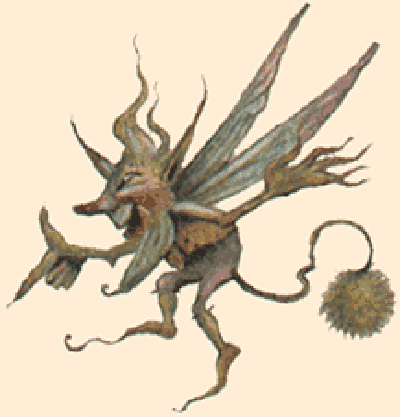 There is also one superficial characteristic that is also significant to understanding what happened. Claude had an impish character to his sense of humor, right down to the trademarked giggle-laugh that served as his calling card whenever he delivered up some special sauce. His was sort of a gleeful chittering in a high pitch - unmistakable to the ear yet difficult to describe.
There is also one superficial characteristic that is also significant to understanding what happened. Claude had an impish character to his sense of humor, right down to the trademarked giggle-laugh that served as his calling card whenever he delivered up some special sauce. His was sort of a gleeful chittering in a high pitch - unmistakable to the ear yet difficult to describe.
Claude and I, and whoever else, would often find ourselves in one of our dorm suites, especially on nights when nothing interesting was going on. Sometimes we'd order food, and the later it got, the fewer choices you had. Once it got past a certain time there was only one option: Chinese takeout, delivered to your door. Who could ask for anything more? Hopefully no one, because nothing else could be had. And I remember this one particular evening, we really wanted something else.
Claude was on the third floor of a low-rise building, and while we were finishing our meal one of the fraternities went marching below, shouting lord-knows-what at the tops of their lungs. During this time of year, the different fraternities did this often, sometimes very late at night, as part of their pledge rituals. It was extremely annoying, but even more vexing was the fact that they were allowed to do it. I could turn up my stereo to a volume far below the level of noise produced by these idiots and have university officials at my door, sometimes in a matter of minutes. It seemed unfair, and I wasn't the only one that had noticed it.
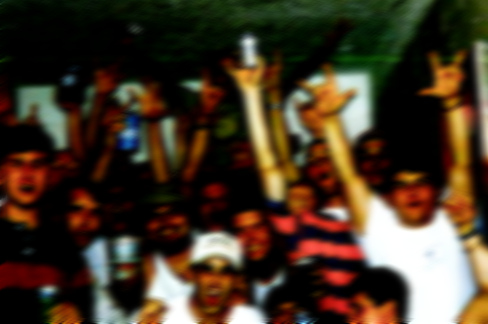 Claude was a light sleeper, and would sleep at odd times. He had been woken up by these demonstrations several times. As I remember he had also had a rough week, and had a bad headache that evening, most of which he spent hunched over an old CRT computer working with his hand on his head. And when this group went marching and shouting by, it gave rise to one of those moments when the camel's back snaps. He had had it.
Claude was a light sleeper, and would sleep at odd times. He had been woken up by these demonstrations several times. As I remember he had also had a rough week, and had a bad headache that evening, most of which he spent hunched over an old CRT computer working with his hand on his head. And when this group went marching and shouting by, it gave rise to one of those moments when the camel's back snaps. He had had it.
Knowing they would not be stopped, he was determined at least to have some impish revenge. We had all heard stories about people throwing things out onto these loud marches in the past, and Claude had an open window immediately next to him. He didn't even look out the window. Out went the uneaten portion of his food, with the container, onto the heads of the passing fraternity pledges. Feeling for a moment back in his weather, he added his characteristic flourish, the chittering laugh of impish glee that indicated to those that knew him - and even those that did not - what he had done.
 Now one can reasonably expect that there are rules and perhaps even laws against what he had done. Claude knew this, and we had been speculating about the possible penalties when there was a knock at the door. When he opened it, there was a university official and several individuals dressed in all black and covered in food. One of them was holding the container. And they were all of apparent Asian descent.
Now one can reasonably expect that there are rules and perhaps even laws against what he had done. Claude knew this, and we had been speculating about the possible penalties when there was a knock at the door. When he opened it, there was a university official and several individuals dressed in all black and covered in food. One of them was holding the container. And they were all of apparent Asian descent.
The narrative against which Claude was asked to defend himself seemed very straightforward to the university official. The reason that the students were all apparently of Asian descent was because this was in fact the Chinese fraternity that was marching by that evening. Onto them Claude had thrown by-now-cold Chinese food and a stereotypical Chinese food container. And from three stories up, several of the fraternity members testified that he made high-pitched "ching-a-ling" noises at them. No, things were very clear. Claude had committed a hate crime.
 Ultimately, we did find out the difference in severity so far as the university was concerned. No one was pressing charges, but there were internal policies to reckon with as well. Had he merely thrown food onto blank people for no reason, he would have received behavioral probation. But this was more serious, and was considered a serious breach of community standards. He had to go. And after an appeal hearing that was never going to reverse the decision, he did go.
Ultimately, we did find out the difference in severity so far as the university was concerned. No one was pressing charges, but there were internal policies to reckon with as well. Had he merely thrown food onto blank people for no reason, he would have received behavioral probation. But this was more serious, and was considered a serious breach of community standards. He had to go. And after an appeal hearing that was never going to reverse the decision, he did go.
So it was that my friend was branded a racist agitator and expelled from the university, an event that undoubtedly impacted the course of his life. And if the university officials, or even the fraternity members themselves, told the story as they knew it, he would appear to be guilty to most listeners. The only trouble for me is that I know otherwise. I know for a fact that he had no input or clues as to the composition of the group below - he did not see them and their shouting could not be understood with the echo. The food was there because it's all there was. And he routinely made the noise they heard, with echo, from three stories up.
And so I know that the consequences he was forced to live with were completely unfair. While in Claude's case it is understandable that an inside view would be needed to understand what had happened, no such view is required for McAfee. All one needs is a logical mind, and some time to sort through what has actually been presented, and how it has been presented.
Barring that, presume for the noble purpose of this lengthy treatise finally concluding, that McAfee did not kill that man. Is it fair, that because of innuendo, fabrications and sensationalism he must live branded as a Murderer? How would you like it, living with the certain (to you) knowledge that you had not done what they've said? Could you even cope with it? Be honest with yourself. Put yourself across from another stranger in a business meeting. Is he wondering if you're a Murderer? Does it affect his decision?
I know the world isn't what it used to be. But if I knew I had participated in creating that reality for another person, I'd be pretty unhappy about it.




